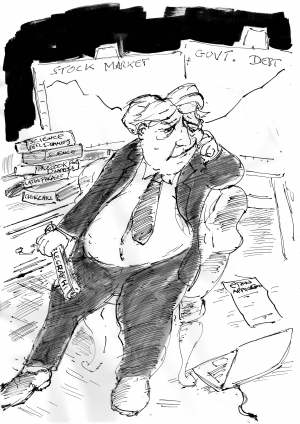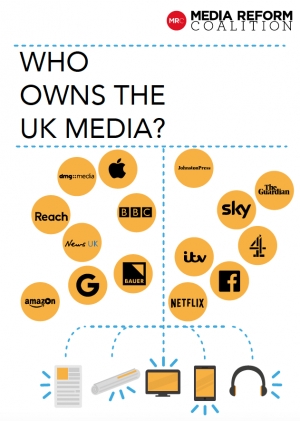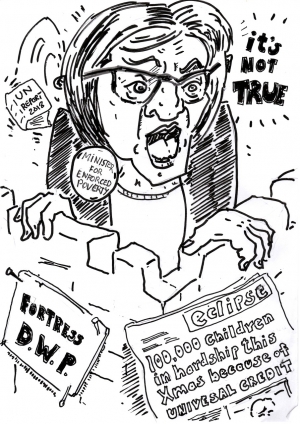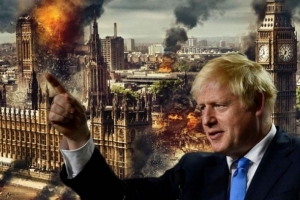
A lesser evil
13th October 2040
Dear Richard,
I know it must be weird and more than slightly disturbing to receive a ‘letter from beyond the grave’, but I trust you won’t be seriously spooked by it, not after all those years as a hospital doctor like me and some of the strange, last-minute revelations we both got to hear from time to time. I’m writing because I have something to tell you which I’ve never spoken of to anyone else although it has been on my conscience for the past twenty years and I’ve been half-minded to tell you about it many times.
The whole thing will probably come as a bit of a shocker and I leave it to you whether or not to make the story more widely known. I still feel justified in what I did and hope that you’ll agree in thinking it was for the best, everything considered. You’ve been a great friend through various thicks and thins over the years and I hope – really hope – this won’t lead you to change your opinion of me or make you wish we’d never met.
I shall lay out the facts as ‘objectively’ as I can but will need to bring in some stuff about how my mind was working at the time in question and what sorts of moral consideration came into play. You took that ‘Medical Ethics’ course with me when we qualified back in the day so maybe the moral philosophy bits won’t seem quite so dry and unappealing. Some of it did strike us both that way at the time but the topics came back to me and really helped to clarify my thoughts during the short period – just a couple of days in 2020 – that I want to talk about here. Anyway my blessings on you, friend, and I sincerely hope that being singled out for receipt of this ghostly communication won’t prove too burdensome or curse-like a privilege.
******
They brought him in around 3 a.m. with lots of security and a flurry of medics and senior admin people, all trying to look calm and commanding on their home terrain, but constantly jostled by the bodyguards if they got too close. None of the usual signing-in stuff, the standard formalities or pleasantries. Straight off to Intensive Care it was, with me following on since that was my ward and we’d had advance notice that a ‘special patient’ was about to come in, someone with advanced symptoms and a severe lung infection.
I’d not thought any more about it – too many other cases to cope with, quite a few of them just as bad – until he actually turned up and I realised who it was. No mistaking him then, even looking like that, clearly in a very bad way, what with constantly fighting to breathe and the wild, frightened eyes of someone who’s been in denial for days but now knows it’s for real. For the rest of that night-shift I just got on with it, looked in on him twice but had more to do with the other patients. Besides, they seemed to have drafted in a small team of unfamiliar medical staff, specially trained maybe, who were always in and out of his side-room. Just as well – us regulars had our hands more than full.
This was all twenty years ago and I don’t now have any detailed memory of what happened over the next two days, or exactly what stages my thinking went through before I reached my decision. There was one conversation I do recall having in the hospital canteen during the evening after the night of his admission. It was with two friends, both nurses, one male and one female, and they were talking about a bunch of related topics – the pandemic, the NHS as it then was, the government cutbacks, their likely effect on our ability to cope with the crisis, that sort of thing.
I started off just lending half an ear and thinking more about how tired I felt, having slept very patchily during the day and not made up for several days’ cumulative deficit. What drew me in was their brief but lively discussion of where the blame lay, how ‘he’ – the guy lying upstairs in our ward with all those tubes and pipes and monitors attached, all those doctors and nurses looking after him – was one of those Tories who had hugely worsened this crisis, who’d cut public spending to the bone, privatised whole chunks of the NHS, flogged them off to their fat-cat friends, and were even then planning to cut a huge deal with US Big Pharma. Their talk stopped there, with both of them expressing their anger but not drawing conclusions, not suggesting there was anything we could do. . . . I had to go back on my rounds then but the talk had set me thinking and I needed more time to sort my thoughts out.
I’d next be working on Intensive Care the following night and one of my assignments given the shortage of staff was to check his oxygen levels, make sure his respiration wasn’t too spasmodic or effortful, and run all the usual measurements – pulse, temperature, and so forth. It was routine stuff, if anything could really be called ‘routine’ in those crazy times, but of course we were all very aware of those jumpy-looking security people and there was no pretending, management pretences aside, that he was Joe Public and to be treated on a par with everyone else.
Maybe that’s what first really got to me, the sense of how unjust it was, how monstrous, that a man like that, a creature of wealth and privilege who’d done such harm to the country and would soon very likely go on to do a whole lot more, should now have this ultra-special treatment while thousands of others fought for their lives in hospitals, homes and social conditions severely impacted by policies like his. And then I thought, or the thought came to me: what had I learnt from those few classes in medical ethics that we went through as part of our training? Is the issue quite as clear as surely it ought to be if the Hippocratic Oath has the kind of straightforward, unambiguous force it’s meant to have, according to longstanding tradition and present-day orthodoxy?
I slept intermittently the next day, waking up each time with a sense that I’d been churning things over in my sleep, coming up against the barrier of something unthinkable, and jolting awake with the urgent desire to sort myself out. I remembered enough of the medical ethics stuff to know pretty much what the big questions were and what kinds of answer they’d received from people who appeared to have a good grasp of them. There was the debate around ‘causing death and letting die’, the difference (which most people think is a real one) between actively or deliberately killing somebody and omitting to save his or her life, whether through negligence or refusal to intervene. That’s ‘most people’ in a broad sense, by the way, not ‘most philosophers’ or ‘most people who’ve done a few classes in medical ethics’. They often got into a bit of trouble when asked to justify their view but the intuition ran deep and there were arguments to support it.
I thought: would letting this man die be morally unacceptable given how much harm he has done to so many lives, not to mention how many people have died during the pandemic as a result of his incompetence, indolence, arrogance, and downright wickedness? And given the prospect of his otherwise surviving, remaining in office and inflicting future harm on even greater scale? The more I thought about it the less monstrous it seemed, the idea of (as orthodoxy would have it) betraying my medical vocation, my professional duty, and indeed the basic principles of right conduct enshrined in the Hippocratic Oath.
But then: might there not be another, more specific reason for believing that Oath to have more than one interpretation and for thinking that it could – on a longer, larger, you might say more socially responsible view – suggest a very different view of things? Again, I kept running through the arguments and counter-arguments and kept coming up against the same obstacle. On the one hand I couldn’t overcome the feeling that failure of care toward any patient – for that matter, any human individual whose well-being or very survival depended on it – must be morally as well as, in my case, professionally and legally wrong. That means a strict, no-exception understanding of the Oath and a belief that acts of omission are morally as culpable as – or fully on a par with – acts of commission whenever those acts knowingly entail or might foreseeably cause harm to another person.
On the other hand the person in question here was one whose future life, if his record to date was anything to go by, would be spent doing harm to a great many people in a great many ways, among them people placed in his own desperately needful situation but enjoying nothing like his advantages of power, wealth, and unearned social privilege. On this view the Oath could be justifiably be taken to allow for the sort of case where a medical worker in my position reviewed his choices, consulted his conscience, and decided that an act of omission – involving, say, the patient’s breathing apparatus or some other vital arrangement – was morally in order. It took me many hours of concentrated, sometimes agonised conscience-searching to work myself around from the first to the second way of thinking.
Another thing I learned from that medical ethics class was the difference between deontic and consequentialist accounts of moral responsibility. The deontic view, simply stated, is that there exist certain absolute moral imperatives, that they have to do with unconditional rights and wrongs, that they are strictly universal (hold good across all situations, cultures, or belief-systems), and that departures from them admit of no exculpatory factors, such as pleas in mitigation or extenuating circumstances. This position tends to go along with an abstractly high-minded morality and a punitive attitude in matters of legal or judicial practice. This follows from the fact that deontic ethics makes the reasoning individual and his or her conscience, motives or deliberations the ultimate arbiters of right and wrong. It leaves them without any recourse beyond that universalist tribunal, no leeway to claim ‘I did it for the greater good, even though it involved an acknowledged lesser harm and even if that harm would count as grievous on a deontic account’.
The other main approach – flatly opposed in most ways – is the consequentialist view whereby motives will (indeed must) come into it although what really matter are the consequences of an action, its outcome in terms of overall benefits to those concerned, or those whose lives would be adversely affected by the agent’s choice not having gone that way. If anything, this puts greater strain on the agent’s conscience or their effort to think through a complex situation because they can’t fall back on the routine application of pre-existing rules. But it allows them scope to steer a conscientious way around the deontic call for actions or choices that might be so rule-bound, counter-intuitive, or repugnant as to leave them feeling utterly revolted by their own ‘principled’ conduct.
This is all very heavy and not what you’d expect from me, even in a letter written, as I hate to say (such a cliché, for one thing) ‘at death’s door’. But it’s stuff we both heard about and then promptly forgot, me at least, since on the whole – in the normal run of cases – we had few choices but got on and did our jobs the best we could do and left hard cases to the guys on the ethics committee, or (more often than most people realise) to medics and relatives in an urgent huddle over some poor suffering soul. But then it all came back, that ethics stuff, when I found myself faced with a real choice and one that left behind any rule-book, moral or professional, for dealing with hard cases. I’ve said how my thinking went in that terrible time and you’ll certainly have figured out by now which way I decided. Still I’d better be a bit more explicit about it in case the choice I made might appear too quick or straightforward.
I didn’t want to fall back on the idea that omissions are less blameworthy than commissions since I took full responsibility for not performing certain of my professionally and (on the narrow view) ethical responsibilities. To pretend otherwise would be to shuffle off any burden of guilt by effectively declaring myself not fully accountable for my action and hence unfit to exercise any kind of genuine moral agency. No: my omission was a full-fledged commission and subject to no such get-out clause. Where I did part company with what many people would no doubt think my plain moral obligation was with regard to both the interpretative scope of the Hippocratic Oath and – closely related to that – the deontic versus consequentialist debate.
They are related because the Oath is mostly read, in broadly deontic terms, as addressed to the individual doctor’s or medical worker’s conscience and as bearing primarily on their obligation to the patient, likewise conceived as an individual bearer of certain strictly inalienable rights. I agree with this view in so far as it applies to persons as persons, that is, as individuals conceived quite distinct from certain roles they may play in contexts – like that of politics – where their beliefs, policies, and actions can have consequences far beyond the private-personal-individual sphere. Shifting from one perspective to the other entails some large changes of moral reckoning, among them the shift from a strongly individualist or person-centred to a longer-range, more socially responsive and collectivist view.
Along with that goes a much greater emphasis on the weighing-up of bad against good consequences, a process that has the beneficial effect of bringing us rapidly down to earth from the abstract universals of deontic precept. In simpler terms: when times are bad or perilous, as they were twenty years ago when all this happened, then it may be commendable to act on the maxim ‘do whatever serves to create the best outcome or cause least suffering to the greatest number’. This might entail an action at odds with some more specific rule, such as ‘act always in the interests of the patient and, above all, for the preservation of his or her life’. Then the consequentialist is entitled to reply ‘but that precept may be suspended or overridden if the result of its strict application is to bring about the kinds of larger-scale social or collective harm that will, very likely, follow from its being applied without reference to context or consequences. And there is another point here about the agent’s motives and the conception of justice they involve. For it is in no sense a retributivist conception, one that conceives the act as a right and proper punishment, whether exacted by the agent as self-appointed minister or carried out in their (again self-appointed) role as instrument of justice in its social or communal form. Rather, the act is performed purely for the sake of averting bad – humanly undesirable – consequences, and not out of any hankering for retribution, for payback time, or any such punitive aim.
Of course my assessment of the situation took account of the man’s character, his many amply documented vices and weaknesses, as well as his proven record of incompetence in office and the effect of an Eton-Oxford education in bolstering his native arrogance and strongly marked sociopathic traits. After all those considerations had a lot to do with the case – the strictly consequentialist case – for what had by now become something very like a fixed intention to act according to my new-found ethical lights. But, equally important, they didn’t involve any idea of his having deserved such treatment at my hands, or his having behaved in such a way that punishment of this sort is justified. Consequentialism applies more than anywhere in the context of political judgement since here we are concerned with the consequences for better or worse in a great many lives when individual politicians with great power in their hands enact policies that impinge directly on those lives.
So you can’t exclude assessments of moral character from a consequentialist reckoning but you can – and must – be absolutely clear that any practical conclusions arrived at have nothing to do with just desert, retribution, or other such punitive concepts. I won’t pretend that all this reasoning went through my mind during those incredibly stressful and often, to be honest, horribly confusing times. I’m doing a sort of rational reconstruction, arranging my thoughts so far as I recall them into something like an ordered sequence. But of one thing I’m certain: that I somehow made the journey from thinking it monstrous, that idea of mine, to thinking it not just compatible with but actually required by my ethical and professional commitments.
I know it’s the biggest of asks to send you this letter now, when I’m safely beyond worrying, and leave you stuck with the decision whether or not to make the facts public. Believe me, you’re the only person I could possibly have trusted to take it on, both on account of our shared medical background and our friendship having held up so strongly over the years. Besides, there were times after the event when we talked about related matters – politics, ethics, social justice, and of course the NHS, still there now in more than name despite all those decades of chipping away by Tories, fat cats, Branson-style carpetbaggers, assorted rippers-off and US Big Pharma.
Once or twice I almost let slip what had happened, or perhaps did let it slip when the drinks had loosened my tongue and slightly befuddled your brain. Perhaps it won’t come as such a huge surprise or shock after all. Let me say, in case you’re wondering: I do feel regret that it fell to me, at that time and in that situation, to make the choice that has since weighed heavily upon me and occasioned many moments of painful, even guilty recollection. But let me also say that when I manage to focus and think things through once again, as I did during those extraordinary days, then the regret comes apart from the guilt and my conscience arrives at the same conclusion.
Goodbye, my old friend.






